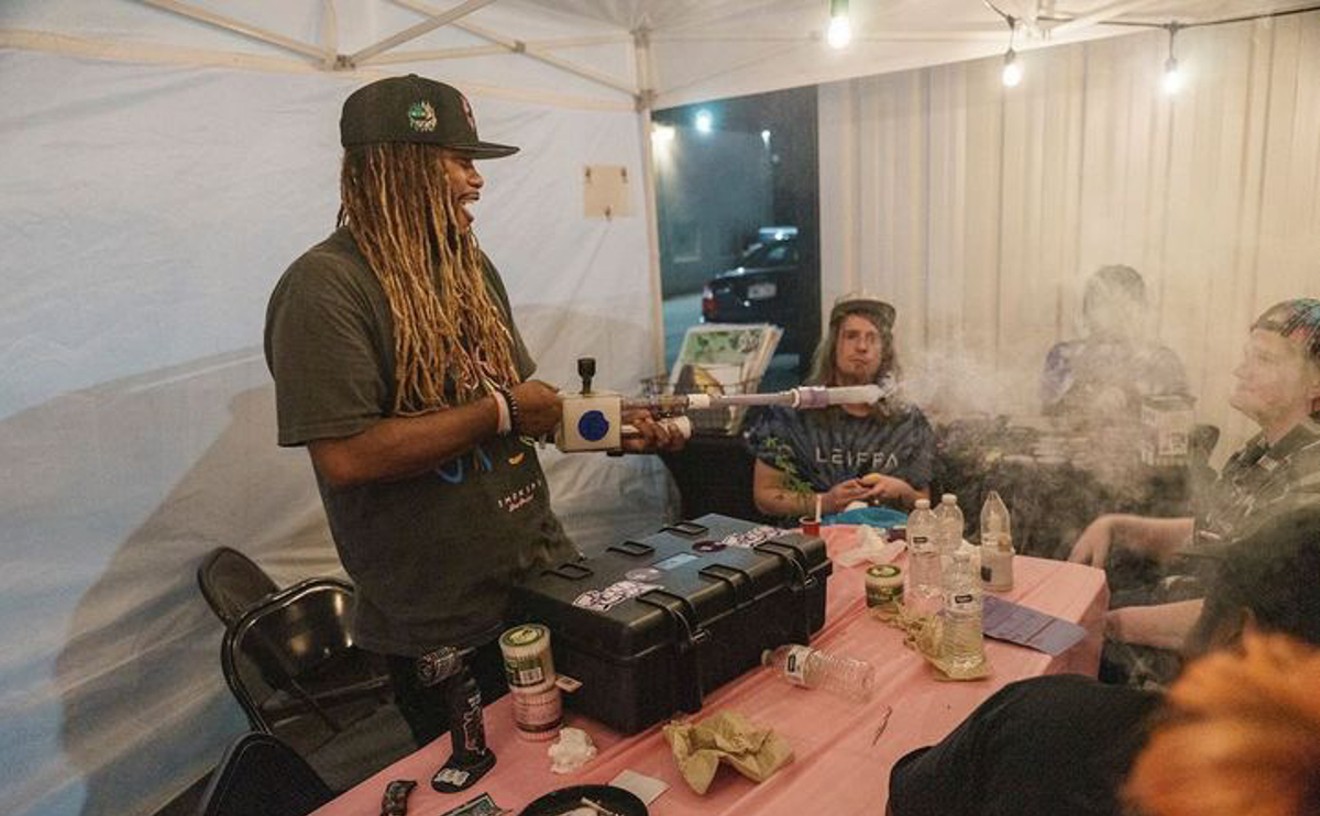HB17-1034: Medical Marijuana License Issues
Sponsors: Representative Dan Pabon (D-District 4), Senator Randy Baumgardner (R-District 8)
Status: Signed
Effective: Immediately
Summary: The retail marijuana code requires a license for retail marijuana business operators. This bill creates a corresponding medical marijuana business operator license. Under current law, a medical marijuana licensee may move his or her location within the city or county where the business is licensed upon approval of the local and state licensing authority. Under the retail marijuana code, a licensee can move his or her business anywhere in Colorado upon approval of the state and local jurisdiction. The bill would allow a medical marijuana licensee to move his or her business anywhere in Colorado upon approval of the state and local jurisdiction to conform with the retail marijuana code.
The bill also allows medical marijuana-infused product manufacturers to sell or buy medical marijuana from another medical marijuana-infused product manufacturer.
SB17-015: Unlawful Marijuana Advertising
Sponsors: Senator Irene Aguilar (D- District 32), Representative Dan Pabon (D-District 4)
Status: Signed
Effective: September 1, 2017
Summary: The bill makes it a level 2 drug misdemeanor for a person not licensed to sell medical or retail marijuana to advertise for the sale of marijuana or marijuana concentrate. The bill excludes from the crime primary caregivers, medical marijuana-infused product manufacturers, retail marijuana product manufacturers, and retail marijuana testing facilities.
SB 17-178: Marijuana Use as a Condition of Bond
Sponsors: Senator Vickie Marble (R-District 23 ), Representative Jovan Melton (D-District 41)
Status: Signed
Effective: August 9, 2017
Summary: The bill prohibits a court from imposing as a bond condition a ban on marijuana use if the person possesses a valid medical marijuana registry identification card.
HB 17-1197: Exclude Marijuana From Farm Products Definition
Sponsors: Representative Joann Ginal (D-District 52), Senator Don Coram (R-District 6)
Status: Signed
Effective: August 9, 2017
Summary: Under the Farm Products Act, the commissioner of agriculture or his or her designee licenses farm product dealers, small-volume dealers, and their agents. The bill excludes marijuana from the definition of "farm products" under the act.
HB 17-1295: Repeal Governor's Office of Marijuana Coordination
Sponsors: Representative Bob Rankin (R-District 57), Senator Dominick Moreno (D-District 21)
Status: Signed
Effective: July 1, 2017
Summary: The Colorado General Assembly created the governor's office of marijuana coordination in 2014 to coordinate the executive branch response to the legalization of retail marijuana as directed by the governor. The bill repeals the office of marijuana coordination, effective July 1, 2017.
SB 17-025: Marijuana Education Materials Resource Bank
Sponsors: Senator Randy Baumgardner (R-District 8), Senator Chris Holbert (R-District 30), Representative Jonathan Singer (D-District 11)
Status: Signed
Effective: Immediately
Summary: This bill will create and maintain a resource bank to be known as the Jack Splitt Memorial Resource Bank by July 1, 2017, for public schools to use without charge. It will consist of materials and curricula pertaining to marijuana use and, upon request of a public school, to provide technical assistance in designing age-appropriate curricula on marijuana use.
The bill authorizes the Department of Education to contract for the maintenance of the resource bank and the development of the curricula, and directs the department to solicit input from persons within and outside of the marijuana industry.
After the resource bank and curricula are available, school districts, charter schools and boards of cooperative services are encouraged to report to the department on their effectiveness and offer recommendations for changes. The bill authorizes resource bank expenses to be paid from the marijuana-tax cash fund.
HB 17-1203: Local Government Special Sales Tax on Retail Marijuana
Sponsors: Representative Steve Lebsock (D-District 34), Senator Larry Crowder (R-District 35), Senator Beth Martinez Humenik (R-District 24)
Status: Signed
Effective: Immediately
Summary: The Colorado Court of Appeals has held that current law does not authorize counties to levy and collect a sales tax on retail marijuana and retail marijuana products in addition to any sales tax imposed by the state and the standard sales tax imposed by the county. Current law is also silent regarding the authority of a statutory municipality to collect a special sales tax on retail marijuana and retail marijuana products. The bill authorizes counties and municipalities to levy, collect and enforce a special sales tax on retail marijuana and retail marijuana products; except that a county may levy, collect and enforce a special sales tax on retail marijuana and retail marijuana products only under the following circumstances:
- The county levies, collects and enforces a special sales tax upon all sales of retail marijuana and retail marijuana products in the unincorporated areas of the county.
- The county levies, collects and enforces a special sales tax upon all sales of retail marijuana and retail marijuana products in the municipalities within the county that do not levy a special sales tax on the sale of retail marijuana and retail marijuana products. The county special sales tax is authorized only until the municipality obtains voter approval for a special municipal tax on the sale of retail marijuana and retail marijuana products. After such time, any county special sales tax is invalid within the corporate boundaries of the municipality unless the county enters into an intergovernmental agreement with the municipality to allow the county to continue to levy, collect and enforce the county's special sales tax.
- The governing body of any county and the governing body of any municipality within the boundaries of the county that levies a municipal special sales tax on the sale of retail marijuana and retail marijuana products enter into an intergovernmental agreement pertaining to the county's levy, collection and enforcement of a special sales tax upon all sales of all retail marijuana and retail marijuana products. The intergovernmental agreement may include a provision for the apportionment of a specified percentage of the gross retail marijuana special sales tax revenue collected by the county to the municipality.
- The bill specifies that a county or a municipality may not levy a special sales tax under any circumstance until the proposed tax has been referred to and approved by the eligible electors of the county or municipality, as applicable. A county or municipality must refer the proposed tax to the eligible electors only on the date of the state general election, on the first Tuesday in November of an odd-numbered year, or, in the case of a municipality, on the date of a municipal biennial election.
SB 17-192: Marijuana Business Efficiency Measures
Sponsors: Senator Tim Neville (R-District 16), Representative Jonathan Singer (D-District 11), Representative Jovan Melton (D-District 41)
Status: Signed
Effective: August 9, 2017
Summary:
The bill allows the state licensing authority to authorize single-instance transfers of retail marijuana or retail marijuana products from a retail marijuana licensee to a medical marijuana licensee based on a business need due to a change in local, state, or federal law enforcement policy. If granted, the transfer must be completed within sixth months of the date the transfer was approved.
SB 17-187: Residency Exemption Marijuana Education-based Occupational License
Sponsors: Representative Joann Ginal (D-District 52), Senator Larry Crowder (R-District 35)
Status: Signed
Effective: August 9, 2017
Summary: Under current law, when an employee or manager of a retail business applies for an occupational license, the person must be a Colorado resident on the date of his or her application. The bill gives the state licensing authority the ability to create an exemption to the residency requirement for a person applying for an occupational license for participation in a marijuana-based workforce development or education program if the person files an affirmation that he or she is participating in a program that requires access to licensed premises.
SB17-017: Allow Medical Marijuana Use for Stress Disorders
Sponsors: Senator Irene Aguilar (D-District 32), Representative Jonathan Singer (D-District 11)
Status: Signed
Effective: Immediately
Summary: The bill creates a statutory right to use medical marijuana for a patient with acute stress disorder or post-traumatic stress disorder. The bill creates the same rights, limitations and criminal defenses and exceptions as the constitutional right to use medical marijuana.
HB 17-1266: Seal Misdemeanor Marijuana Conviction Records
Sponsors: Senator Vickie Marble (R-District 23 ), Representative Jovan Melton (D-District 41), Representative Edie Hooton (D- District 10), Senator Stephen Fenberg (D- District 18)
Status: Signed
Effective: August 9, 2017
Summary: The bill allows persons who were convicted of misdemeanors for the use or possession of marijuana to petition for the sealing of criminal records relating to such convictions if their behavior would not have been a criminal offense if it had occurred on or after December 10, 2012. The court shall order the record sealed after the filing fees are paid, the petitioner establishes the offense is eligible for sealing, and the petition is posted on the website of the state court administrator for thirty days.
HB 17-1367: Authorize Marijuana Clinical Research
Sponsors: Representative Dan Pabon (D-District 4), Senator Randy Baumgardner (R-District 8), Senator Cheri Jahn (D- District 20), Representative Jeni James Arndt (D- District 53)
Status: Sent to Secretary of State without signature
Effective: July 1, 2018 (until a redraft is accepted by the General Assembly next session)
Summary: The bill creates a marijuana research and development license that allows the holder to possess marijuana for research purposes and a marijuana research and development cultivation license that allows the holder to grow, cultivate, possess and transfer marijuana for research purposes. An applicant must submit with the license application a description of the research to be conducted, and if the research involves a public entity or public money, then the scientific advisory commission shall review and assess the research project. A marijuana research and development cultivation licensee may only sell marijuana it grows to other marijuana research and development cultivation licensees. A marijuana research and development licensee or marijuana research and development cultivation licensee may contract with a public research institution of higher education or another marijuana research and development licensee. The state licensing authority may promulgate rules related to marijuana research and development licenses and marijuana research and development cultivation licenses.
The bill allows a medical marijuana testing facility licensee to test medical marijuana and medical marijuana-infused products for marijuana research and development licensees and marijuana research and development cultivation licensees, and marijuana or marijuana-infused products grown or produced by a registered patient or registered primary caregiver on behalf of a registered patient, upon verification of registration and verification that the patient is a participant in a clinical or observational study conducted by a marijuana research and development licensee or marijuana research and development cultivation licensee.
Note: Hickenlooper sent this bill forward without signature because a word change in late amendments to sections 7 and 8 of the measure will limit the Marijuana Enforcement Division's power to enforce contamination and potency rules. As a result, once the law takes effect, a state agency will be allowed to only use results from marijuana testing labs that are certified by both the Colorado Department of Revenue and accredited by the International Organization for Standardization and International Electrotechnical Commission. Only two of the MED's sixteen registered testing labs currently meet those requirements.
Because Hickenlooper abstained from signing the measure, his office plans to work with the bill's sponsors to present new legislation with corrected text at the start of next year's legislative session.
HB 17-1220: Prevent Marijuana Diversion to Illegal Market
Sponsors: Representative KC Becker (D-District 13), Representative Cole Wist (R-District 37), Senator Rhonda Fields (D-District 29), Senator Bob Gardner (R-District 12)
Status: Signed
Effective: January 1, 2018
Summary: The bill places a cap on the number of plants that can be possessed or grown on a residential property at sixteen plants unless a local jurisdiction permits possessing or growing more than sixteen plants. The criminal penalties for violating the cultivation limit are:
- A level 1 drug petty offense for a first offense if the offense involves more than twelve plants, punishable by a fine of up to one thousand dollars;
- A level 4 drug felony for a second or subsequent offense if the offense involves more than twelve but not more than thirty plants; or
- A level 3 drug felony for a second or subsequent offense if the offense involves more than thirty plants.
The bill requires a patient or primary caregiver cultivating medical marijuana to comply with all local laws, regulations and zoning requirements.
SB 17-111: Medical Marijuana Inventory Shortfall Fixes
Sponsors: Senator Tim Neville (R-District 16), Representative Matt Gray (D-District 33), Dafna Michaelson Jenet (D-District 30)
Status: Vetoed
Summary: The medical marijuana system is a vertically integrated regulatory scheme, meaning a medical marijuana center must grow the marijuana that it sells. There is one exception to the vertically integrated market: A medical marijuana center can sell to or buy from other medical marijuana licensees up to 30 percent of its inventory. The bill changes the 30 percent limit to 50 percent. The bill states that a medical marijuana center may transfer medical marijuana to another medical marijuana licensee if the licensees have a common owner, without the medical marijuana counting toward the 50 percent limit.
Note: Hickenlooper vetoed this bill because his office believed the statute would weaken vertical integration laws. “There is no clear data to support the basis for these provisions, and the bill does not provide a substitute for production management of medical marijuana inventory,” Hickenlooper wrote in a letter to the Colorado Senate explaining his veto late last week. "Thus, both provisions weaken long-standing vertical integration laws in a manner that favors a subset of licensees, poses inventory tracking challenges for MED, and risks destabilizing Colorado medical marijuana markets.”













